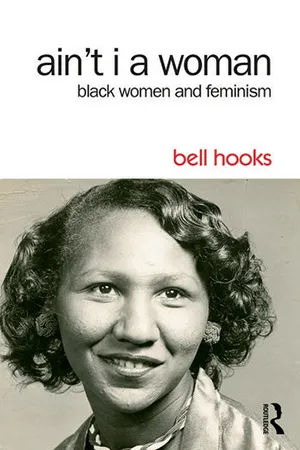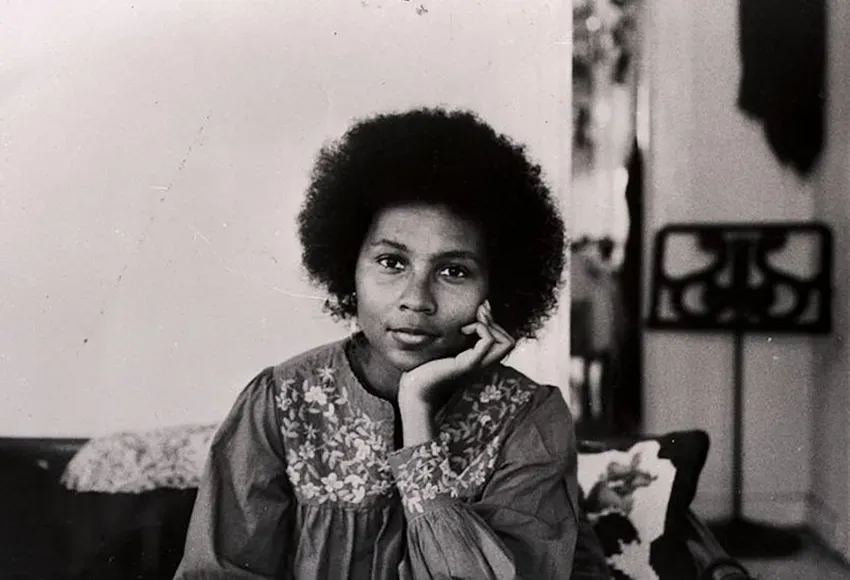There also seems to be a boldness associated with queerness, and also many other "non-normative" identities. There seem to be criteria for being queer, beyond just identifying as queer. Policing identities and gatekeeping communities is a particular tool of oppression and is often used by white supremacy and the patriarchy.
– bell hooks
How do you memorialize a hero with only the written word?
On Wednesday, December 15, 2021, the world lost a legend. Gloria Jean Watkins, better known by her pen name bell hooks, died surrounded by family in her home in Berea, Kentucky, at the age of 69.
hooks was an author, professor, and social activist. She was well known for her theories on the intersections of race, capitalism, sexuality, and gender, speaking out against systems of oppression and class domination. Her essays and novels inspired generations of feminists and made academic writing accessible.
Born in 1952, hooks grew up in a working-class Black household. Her father was a janitor, and her mother made a living cleaning the homes of wealthy white people.
She experienced intersectional systemic oppression from the very beginning, getting her education amid Southern segregation. Putting her intuition to work, she soon began to theorize about how overlapping identities led to unique experiences of marginalization for women of color.
She entered college while the second wave of feminists burned bras and demanded equal pay for equal work. While she was inspired by these feminists at the time, she also noticed that issues important to women of color were left out. These women demanded reproductive rights but excluded conversations about the forced sterilization of women of color. They wanted to talk about bringing white women into the workforce, but in turn, refused to advocate for better working conditions for the women of color who had been the foundation of the working class.
Seeing a need for more intersectionality in feminism, she began a career of tireless activism, analyzing the experiences that shape the ways women of color are excluded from conversations about gender, race, and sexuality.

In 1981 hooks published her first novel, Ain't I a Woman, inspired by the speech of the same name given by Sojourner Truth in 1851. It was the first of nearly 30 books that she would release in her lifetime.
hooks' words were liberation in action. She broke down complex ideas and hoity-toity theories in ways that were easy to understand and digest.
bell hooks was my messiah as a second-year college student bogged down by academia. Before I encountered her work, I was your run-of-the-mill white feminist. So steeped in my privilege, I never gave a second thought to the ways my movement was excluding women of color, and Trans, Queer, and disabled women.
I only ever met hooks through the pages of her books, but over the next three years, she rearranged my feminism and changed my life.
hooks was Queer. She never officially labeled her sexuality beyond that. This, like refusing to capitalize her name, sent a message to the world: the complexities of the human experience cannot be summarized in any set of binaries.
On a panel, hooks once said, "Identifying as queer and moving beyond binaries is revolutionary and is centered in abolitionist thought – so why is the community that has been oppressed for centuries using the same tools as the oppressor? It reminds me of one of my favorite Audre Lorde quotes: 'The master's tools will never dismantle the master's house.'"
It was hooks who first introduced me, and thousands of other young feminists, to the idea that binaries were chains holding us in a system created to oppress the many for the benefit of the few. hooks led by example and showed that, though it was not easy, living a life outside of the binary was a step toward freedom that all those suffering under oppression could take.
No number of words can add up to her achievement. To simplify her life in one article is impossible. bell hooks made feminism accessible. She entered into a well-intended but deeply flawed movement with the clarity to understand how to revolutionize it. The world, because of her, has been changed for the better.
We have lost a hero when the world needs her the most. But hooks did not leave us without instruction. Thanks to her tireless work, thousands of people now have the language and understanding to reshape their experiences and see themselves as the heroes of the feminist movement.
Rest in power, bell hooks, and thank you for lighting the match that will fuel the revolution.


